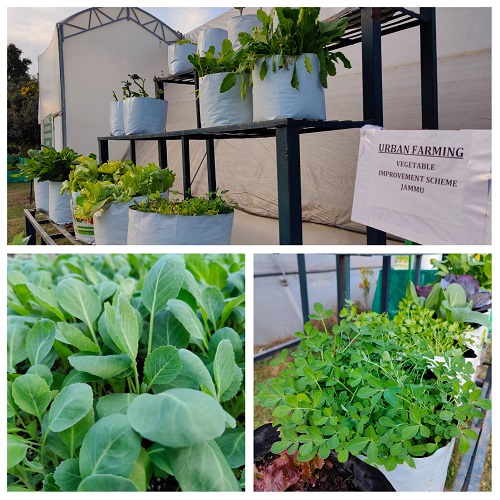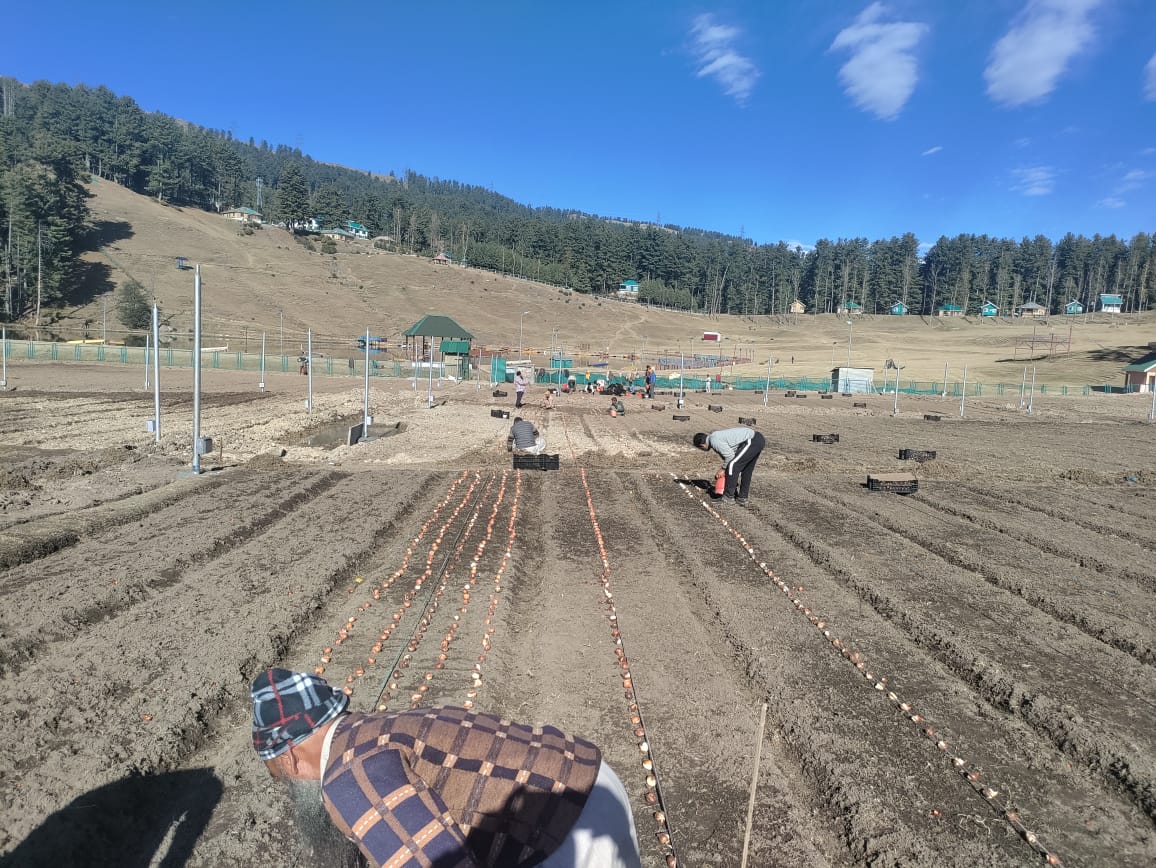Jammu, Dec 12: Urban farming has been gaining momentum in the Jammu region for the last couple of years.
According to JC Raina, agronomist (Vegetable Improvement Scheme), the Directorate of Agriculture Jammu sold a record 1,200 bags of plants of exotic varieties last year only from its nursery situated at Talab Tillo, Jammu.
“This year the number of bags sold to individuals (for household farming) and farmers has increased manifolds,” Raina told Rising Kashmir.
He said that besides the Agriculture department’s nursery where the exotic vegetables are grown in a controlled atmosphere, there has been a sharp rise in the number of private nurseries being set up by the qualified youth of the region and farmers. “They grow exotic vegetables like red and yellow cabbage, gudiball cabbage, green and red lettuce, coriander, broccoli, Bok Choy, red and yellow cauliflower, and other varieties of vegetables, in different districts of Jammu province,” he said.
In order to meet the growers’ requirement of seedlings of the exotic vegetables, Raina said the Agriculture department has also set up a Naturally Ventilated Poly Greenhouse (NVPGH) on land measuring 3 kanals (1500 square meters) where 12 lakh seedlings were grown in the current year under the vegetable improvement scheme.
“We had grown 40,000 seedlings of Royal Selection onion, 10000 seedlings of XP-Red onion, 10000 seedlings of White Excel cauliflower, 15000 seedlings of REMI-F1 cauliflower, 4000 seedlings of Red Jewel cabbage, 5000 seedlings of Broccoli Green Magic, 3000 seedlings of Bok Choy green stem, and 3000 seedlings of Gudiball cabbage and other varieties of the vegetables, in our poly house,” the agronomist said. “And we’ve sold a good percentage of the seedlings grown in the departmental poly house through departmental exhibitions, private stalls, and through direct sale to the individuals from the departmental nursery.”
According to Raina, the cost of the exotic varieties of vegetable seedlings and ornamental plants is very nominal and these plant seedlings could be easily purchased from the departmental nursery.
“The farmers interested in growing the exotic vegetables on a large scale are also provided with adequate subsidies,” he added.








